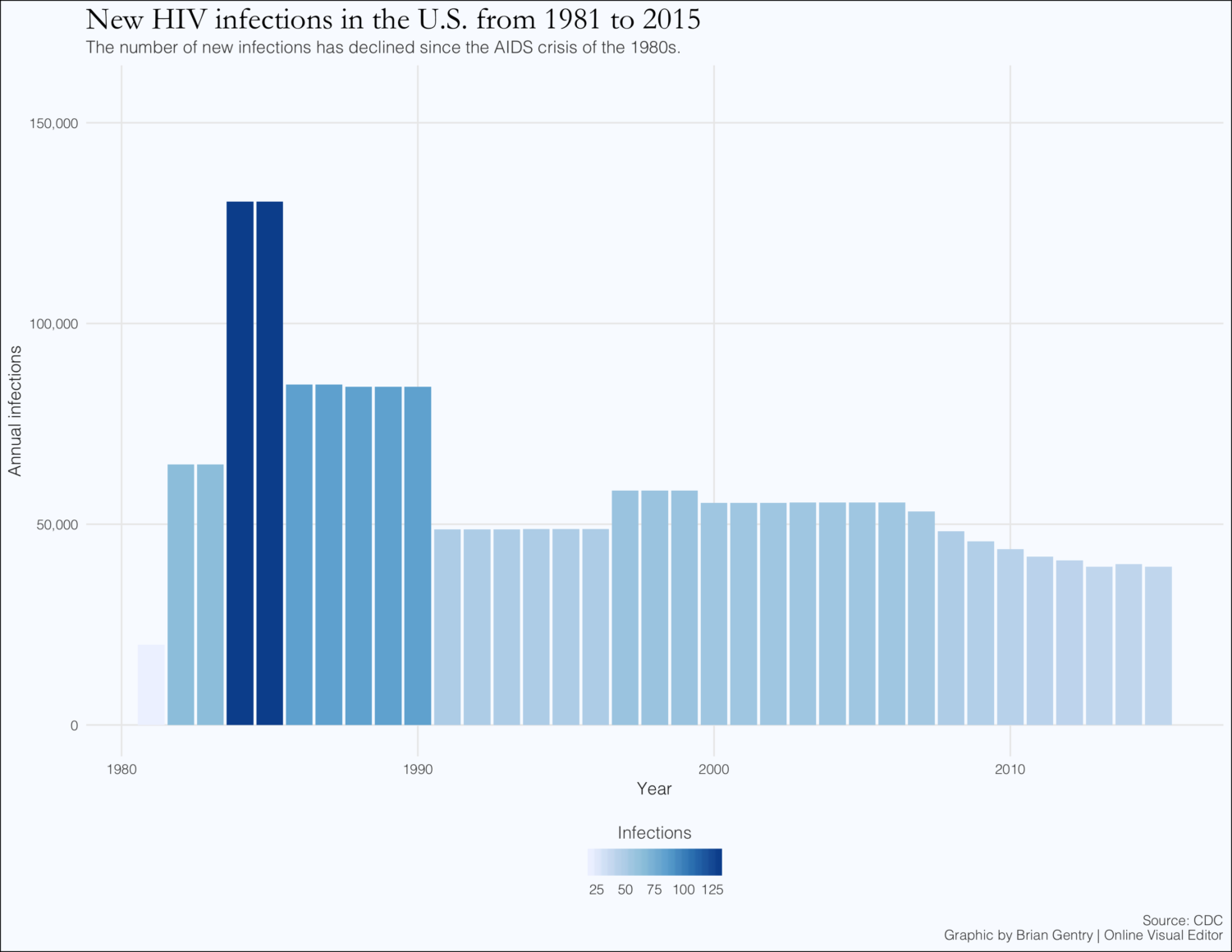Community reflects on “changing face of AIDS”


Rabbi James Gibson stood before a small, quiet congregation in Heinz Chapel Wednesday night with a dedication.
“We remember our friends, lovers and spouses,” he said. “Our mothers, fathers, brothers and sisters, daughters and sons lost to HIV and AIDS.”
He gave the room permission to rise.
“Please come forward and place the names of those for whom you are still aching on the Circle of Love,” he said.
Nearly everyone in the room came forward. They waited in line to reach the front of the chapel and place a sticker on a large white cardboard circle that read “Circle of Love.” Each sticker held a name of a friend or relative who had been lost to AIDS. Some had four or five.
More than 60 attended the commemoration service, sponsored by the Pitt Men’s Study in honor of the 31st annual World AIDS Day. Nearly 40 years after the start of the AIDS crisis, mourners and survivors gathered in memory of those lost to the disease.
The first AIDS patients appeared in New York and California in the early 1980s. Young gay men showed up at doctors’ offices with rare forms of cancer and pneumonia. Slowly, doctors came to the realization that the patients’ immune systems had been compromised by an unknown virus.
Cases began to emerge across the country, including Pittsburgh. Doctors soon knew enough to recognize the symptoms, but there was no name for the disease.
Later, scientists discovered human immunodeficiency virus, or HIV, was at the root, attacking the immune system’s T-cells and making the patient extremely susceptible to other types of disease and infection. They put a name to autoimmune deficiency syndrome, or AIDS, the third stage of the virus, when HIV has devastated the immune system.
The Pitt Men’s Study is an investigation into HIV/AIDS that has received funding from the National Institutes of Health since 1984. Its principal investigator is founder Dr. Charles Rinaldo, who chairs the department of infectious diseases and microbiology at Pitt’s School of Public Health. Rinaldo gave a short account of the beginnings of the study, thanking those who had made it possible.
Among those who made it possible were a doctor who identifies as gay and worked on the study as a medical student, and the owners of the Pittsburgh gay bars who allowed Rinaldo and his colleagues to advertise their study.
He also thanked Dr. Jerry Rabinowitz, a victim of last month’s shooting at the Tree of Life Synagogue. In the days following the shooting, many remembered Rabinowitz for his treatment of Pittsburgh HIV/AIDS patients in a time when compassionate care was difficult to come by.
“Back in the 1980s, we referred many of our men to his practice,” Rinaldo said.
Rinaldo said he and Bill Buchanan, the clinic coordinator for the Pitt Men’s Study, wrote an obituary for Rabinowitz to appear this December in AIDS, a scientific journal focused on HIV/AIDS.
Above all, Rinaldo thanked study participants.
“It was 1982, at the beginning of the epidemic, when fear of AIDS was rampant, when 60 gay men in Pittsburgh answered our hand-drawn recruitment posters,” Rinaldo said. “These 60 men in our pilot study knew we had no treatment or care. They knew we had no magical elixir. Without those 60 men, there would be no Pitt Men’s Study.”
1,736 men have enrolled in the study since 1982, according to Rinaldo. Out of these, 465 have died, most due to complications from AIDS. And although AIDS is no longer a death sentence, there is no cure and the Pitt Men’s Study continues to investigate HIV/AIDS.
Sean DeYoung represented Allies for Health + Wellbeing, the HIV testing location and health center, of which he is CEO. During the service, which was themed “The Changing Face of AIDS,” he spoke about the group’s 2017 decision to change its name from the Pittsburgh AIDS Task Force.
“The community let us know that the word ‘AIDS’ was too stigmatized,” DeYoung said. “And we weren’t a task force anymore.”
Allies’ mission has expanded since its 1985 beginnings. Then, it existed to provide support and information to the infected in the Pittsburgh area. Now, it offers HIV testing, health care for transgender people and access to PrEP, one of the most reliable methods of HIV prevention.
At the end of the service, some attendees traveled across the street to the basement of the Community of Reconciliation Church, where they caught up with one another at a small reception. For some, like partners Robert Flaherty and Robert Maxin from Emsworth, the service is an annual occurrence.
“My partner was part of the original Pitt Men’s Study,” Maxin said.
Now, he and Flaherty attend the event nearly every year. Both are HIV positive and both had names to add to the Circle of Love.
“I put two up, but I could have easily put up 12 or 15,” Flaherty said.
Recent Posts
Opinion | School should be in the summer
Although this may be controversial, I believe that from this data, it is evident that…
Weathering the storm: Pittsburgh teams have tackled some of the toughest environments
The end of the year in western Pennsylvania is always marked by two things —…
Notes From an Average Girl // Notes on Book Banning
In this edition of Notes From an Average Girl, senior staff writer Madeline Milchman writes…
To Be Honest // Yup, it is that damn phone
In this edition of To Be Honest, staff writer Evin Verbrugge writes about her phone…
Meaning at the Movies | Portraying Toxic ‘Adolescence’
In this edition of Meaning at the Movies, staff writer Lauren Deaton explores the mini-series…
Opinion | Climate change requires radical, immediate action
Contributing editor Emma Hannan talks about the effects of climate change and the actions cities…

